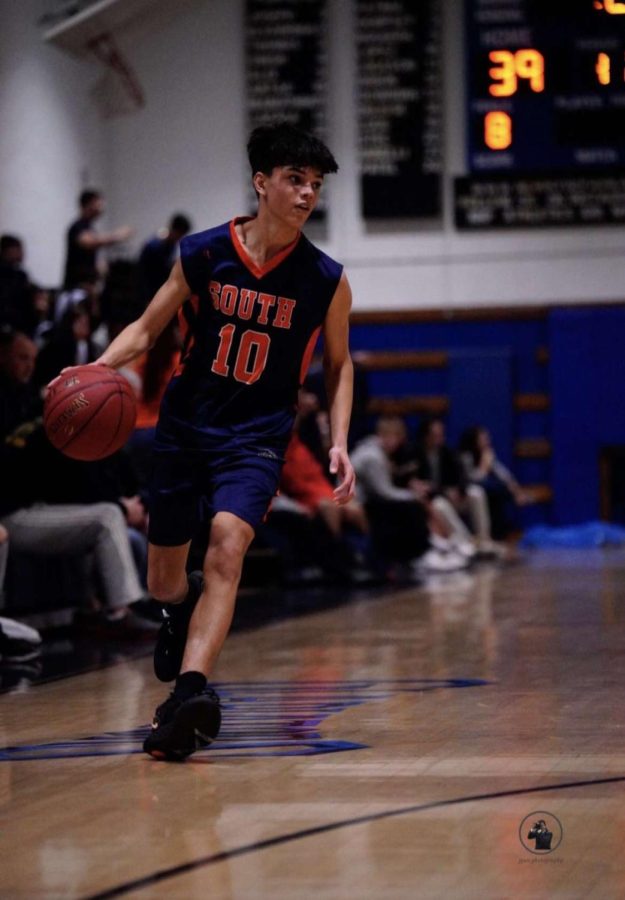By Gabe Lefkowitz and Adam Bernstein
What if we told you that the first four lines of a song touched on continuing education, cleaning up inner city streets, and being a good role model in your community? Would you assume this song was rap? Probably not, as most people have a preconceived notion that rappers are deranged low-lives who cause violence and threaten law and order in society. However, the lines described are, in fact, the opening verse of a hit song that topped the hip hop charts: Angels by Chance the Rapper. People’s conceptions of rap are often shaped by a few prominent irresponsible figures in the rap industry. However, rap is a complex genre of music, a raw form of storytelling that can be a tool in the classroom to highlight contemporary poetry and understand the social state of America.
Rappers constantly use their medium to bring attention to important problems in society; this is seen in the song “Murder to Excellence” by Kanye West and Jay Z, which is about black-on-black violence. It addresses how the community should not turn on each other and instead focus on bigger things such as defeating institutionalized racism. Both Jay Z and West grew up in America’s inner cities and witnessed black-on-black violence first hand. They have been affected on a personal level and have lost loved ones because of it. Because they are influential social figures, they use their music to condemn the violence.
Another example is Kendrick Lamar’s song “Opposites Attract,” which discusses domestic abuse. Lamar raps from both the point of view from the abused and the abuser in the song and shows how domestic abuse is more complex than it seems. Especially at the end of the song where he uses an excerpt of spoken word poetry to show how domestic abusers are suffering themselves. Domestic abuse is a very controversial subject that public figures tend to stay away from covering. That being said, it is a major problem that needs to be addressed. Lamar doesn’t shy away from spreading awareness about something he deems important.
In a way, rappers provide primary sources, explaining the happenings of America’s diverse communities and inner cities. Rap music gives a voice to people who know struggle and perseverance and allows them to share their experiences with the world.;They shouldn’t be forced to censor what they are saying to avoid “scaring” or “offending” their listeners. As English teacher Mr. Daniel Weinstein said, “I think that an important aspect is the story that is being told. These are people that don’t always have a voice in society.”
While many denounce rap music for its profanity, the curses found in rap often contribute to the mood and heightened emotion of the songs. In the song “Lost Ones” by J Cole, curse words highlight the raw emotional conflicts of the characters over abortion. Without these curse words, the song would lose its voice and power.
English teacher Mr. Brian Fadde, who has been a rap fan since middle school, says his views on the use of curses in rap music differ based on when and how they are used. “Everything has its context. It’s hard to say when using a curse is justified and when it is not. For example, some people just kind of throw the N-word around, others try to stay away from it. There are ways to do things cleverly, but there definitely are some people who curse just to curse.”
Kendrick Lamar addressed the use of the n-word in his hit song, “i:”
“So I’ma dedicate this one verse to Oprah
On how the infamous, sensitive N-word control us
So many artists gave her an explanation to hold us
Well, this is my explanation straight from Ethiopia
N-E-G-U-S definition: royalty; King royalty – wait listen
N-E-G-U-S description: Black emperor, King, ruler, now let me finish
The history books overlook the word and hide it
America tried to make it to a house divided
The homies don’t recognize we been using it wrong
So I’ma break it down and put my game in a song
N-E-G-U-S, say it with me
Or say no more. Black stars can come and get me
Take it from Oprah Winfrey, tell her she right on time
Kendrick Lamar, by far, realest Negus alive”
Lamar challenges the meaning of the N word, taking a slur that was once racist and derogatory and turning it into something empowering. . .
Rap, like all music, is poetry. Rappers must constantly change the syntax of their sentences to make their lyrics fit a particular meter. Mr. Fadde recognizes the art of lyricism and lauds “the amazing things some of them can do with words and lyrics.”
Mr. Weinstein agreed, sayinh, “Beyond the sound is some of the most amazing writing that is going on in society. I love to listen to the wordplay and puns. All of the devices that I teach in my class are present in their music.”
For years now, Mr. Weinstein has integrated rap music into his curriculum, and it has been a perennial student favorite. Weinstein uses “rap music almost exclusively to demonstrate what contemporary poetry looks and sounds like.” He also incorporates the story behind the song into his lesson plans. He said, “It amazes me how extraordinarily bold and risky they are to tell the details of their lives. That’s what I’m always trying to get my students to do, and this really helps to give them a concrete example.”
People in the music industry are finally beginning to understand and respect rap music. Jay Z recently became the first ever rapper nominated for the Songwriters Hall of Fame, a huge step for rap and its fans. The fact that Jay Z could be enshrined right next to names such as Stevie Wonder, Bruce Springsteen, Paul McCartney, Jon Bon Jovi, and David Bowie really proves that. rap music is a legitimate form of music, one that should be respected and admired.




